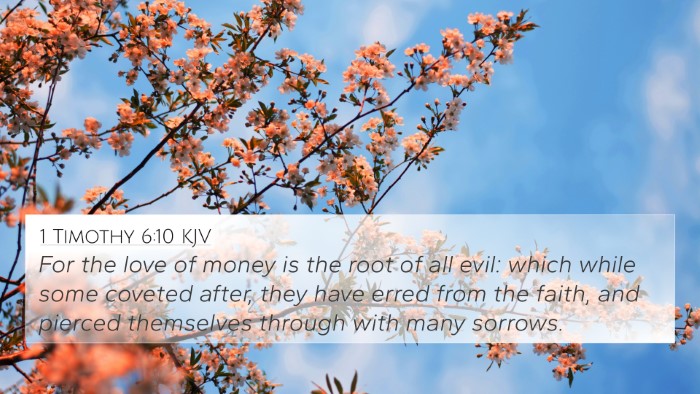Understanding 1 Kings 2:40
Verse Reference: 1 Kings 2:40
The verse states: “And Shimei arose, and saddled his ass, and went to Gath to Achish, to seek his servants: and Shimei went, and brought his servants from Gath.”
Context and Background
This passage occurs in the narrative following the death of King David, as his son Solomon establishes his reign. Shimei, who had previously insulted David, is granted a conditional pardon by Solomon, which sets the stage for the events that follow.
Verse Meaning and Analysis
Commentaries by Matthew Henry, Albert Barnes, and Adam Clarke provide a rich exploration of the implications surrounding this verse. Below is a synthesis of their insights.
-
Matthew Henry’s Commentary:
Henry emphasizes Shimei's lack of gratitude and the consequences of breaking the king’s decree. His journey to Gath demonstrates a return to his old, dishonorable ways, signifying rebellion against the newly established authority of Solomon.
-
Albert Barnes’ Notes:
Barnes notes that Shimei’s actions were a blatant disregard for Solomon’s command. His quest for his escaped servants symbolizes his desire to regain control over his circumstances, which indicates a lack of repentance and respect for the king.
-
Adam Clarke’s Commentary:
Clarke discusses the implications of Shimei’s defiance, highlighting the danger of returning to past sinful behaviors. He views Shimei's decision to leave Jerusalem as a crucial misstep that ultimately leads to his demise, emphasizing the importance of obedience to God’s appointed leaders.
Thematic Connections and Cross-References
This verse can be linked to a number of other biblical passages that reflect similar themes of authority, rebellion, and consequences. Here are some key cross-references:
- 1 Samuel 15:22-23: “To obey is better than sacrifice...” - Emphasizes the importance of obedience to God’s commands.
- Proverbs 13:15: “The way of the transgressor is hard.” - Illustrates the difficulties faced by those who defy authority.
- Jeremiah 7:24: “But they did not obey or incline their ear...” - Reflects on consequences of disobedience.
- Romans 13:1: “Let every soul be subject unto the higher powers...” - Highlights the need for submission to governing authorities.
- Acts 5:29: “We ought to obey God rather than men.” - Discusses the balance of obeying divine versus earthly authority.
- 2 Samuel 16:5-8: The earlier context of Shimei cursing David, aiding in understanding the tensions of his character.
- Matthew 26:52: “For all they that take the sword shall perish with the sword.” - A warning about the consequences of violence and rebellion.
Interpreting Biblical Themes
The analysis of 1 Kings 2:40 reveals significant theological themes:
- The consequences of rebellion: Shimei’s actions reflect a broader narrative concerning the futility of resisting God-appointed authority.
- The mercy of God: Solomon’s initial pardon of Shimei illustrates divine mercy, which is to be respected, not abused.
- Human nature’s tendency to stray: Shimei’s journey symbolizes a return to sinful inclinations, a common thread throughout scripture.
Applying Cross-Referencing Tools
For deeper study, utilizing tools for Bible cross-referencing can enrich understanding:
- The Bible concordance helps in identifying key themes and verses related to specific words.
- A Bible cross-reference guide allows for quick access to related passages for thematic studies.
- Engaging in cross-reference Bible study can reveal intricate connections within the text, enhancing one’s grasp of scripture.
- Utilizing Bible chain references can streamline the process of tracking an idea through a thematic lens.
Conclusion
1 Kings 2:40 encapsulates a critical moment in the transition of power from David to Solomon and serves as a cautionary tale about obedience and the repercussions of straying from divine guidance. By exploring this verse alongside its cross-references, one gains a deeper insight into the overarching narratives and moral lessons found within the Bible.





